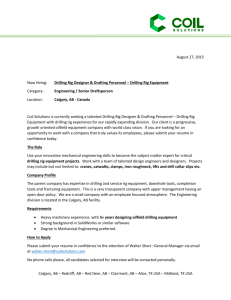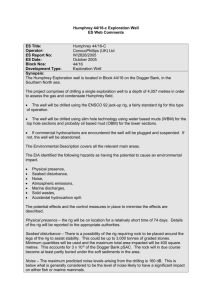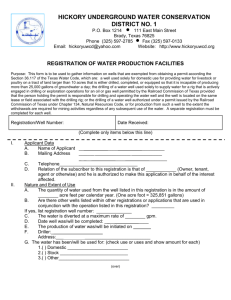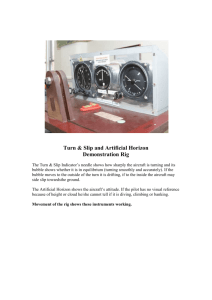New Digital Rig Operations Surveillance System
advertisement
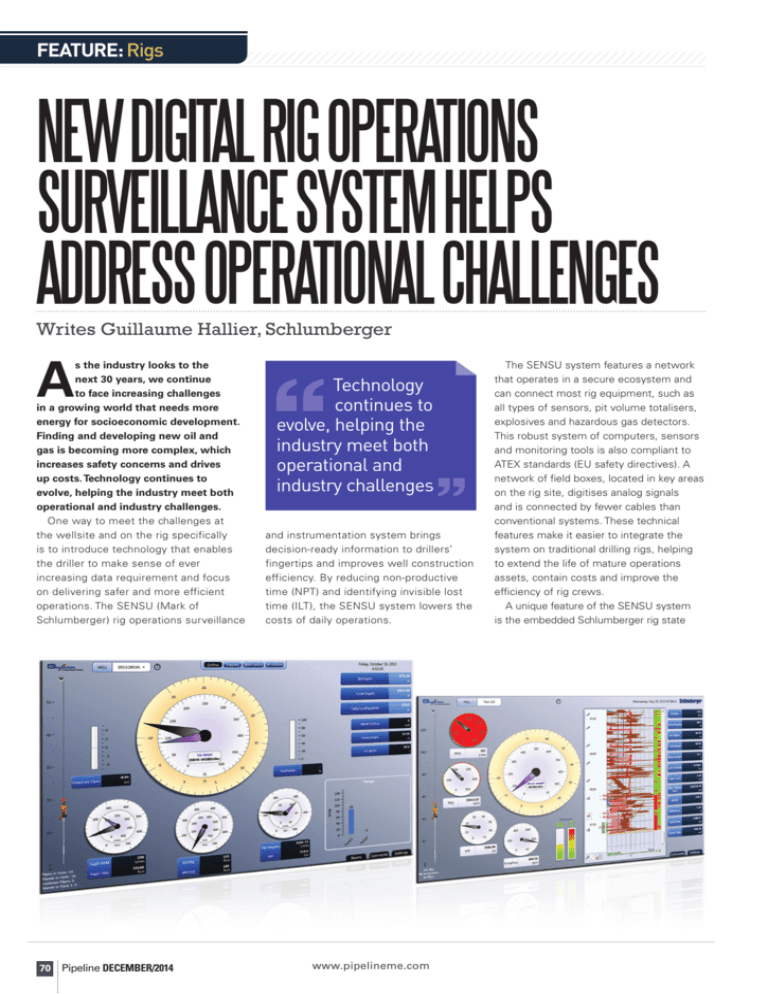
Feature: Rigs New Digital Rig Operations Surveillance System Helps Address Operational Challenges Writes Guillaume Hallier, Schlumberger A s the industry looks to the next 30 years, we continue to face increasing challenges in a growing world that needs more energy for socioeconomic development. Finding and developing new oil and gas is becoming more complex, which increases safety concerns and drives up costs. Technology continues to evolve, helping the industry meet both operational and industry challenges. One way to meet the challenges at the wellsite and on the rig specifically is to introduce technology that enables the driller to make sense of ever increasing data requirement and focus on delivering safer and more efficient operations. The SENSU (Mark of Schlumberger) rig operations surveillance 70 Pipeline DECEMBER/2014 Technology continues to evolve, helping the industry meet both operational and industry challenges and instrumentation system brings decision-ready information to drillers’ fingertips and improves well construction efficiency. By reducing non-productive time (NPT) and identifying invisible lost time (ILT), the SENSU system lowers the costs of daily operations. www.pipelineme.com The SENSU system features a network that operates in a secure ecosystem and can connect most rig equipment, such as all types of sensors, pit volume totalisers, explosives and hazardous gas detectors. This robust system of computers, sensors and monitoring tools is also compliant to ATEX standards (EU safety directives). A network of field boxes, located in key areas on the rig site, digitises analog signals and is connected by fewer cables than conventional systems. These technical features make it easier to integrate the system on traditional drilling rigs, helping to extend the life of mature operations assets, contain costs and improve the efficiency of rig crews. A unique feature of the SENSU system is the embedded Schlumberger rig state Feature: Rigs Customizable, real-time displays provide accurate rig and drilling information—the crucial information that rig personnel need to make decisions. (Image courtesy of Schlumberger.) engine that automatically detects 17 individual rig activities/states. The rig state engine enables automatic and real-time calculation of 18 event metrics, such as back reaming, on slip and off-bottom time, maintenance measurements for critical rig component parts and operations metrics calculating various drilling and tripping KPIs in real time at the rig site. Drillers interact with the system through its customisable, real-time display that continuously provides accurate rig and drilling information, enabling drillers need to make decisions with up-to-date information. The system can be configured with low- and high-level alarms for each parameter, with both visual and audible cues, for prompt response to incidents and improved safety performance. It also automatically records all alarms and alarm acknowledgements and is capable of full audit and operations tracking for actions performed in the system. The SENSU system connects rig and onshore personnel, allowing them to share wellsite information such as realtime drilling data and many different report formats, including daily reports in the standard format from the International Association of Drilling Contractors (IADC). Remote and collaborative capabilities 72 Pipeline DECEMBER/2014 mean office-based personnel can easily monitor multiple projects regardless of location. The system supports many different devices, including computers, tablets and mobile devices (HTML5 and specific Apple iPhone/iPad applications) using the WITSML industry standard. The SENSU system connects rig and onshore personnel, allowing them to share wellsite information such as real-time drilling data Integration with mobile technologies means workers can interact more easily with the system, allowing them to better focus on drilling operations. Saxon Energy Services recently installed the SENSU system on two of its mature drilling rigs, with the main goal of improving its well construction process and reducing NPT. The existing rig system www.pipelineme.com required considerable human intervention to set up, record measurements and compute operational parameters. These time consuming activities increased the likelihood of errors and made it difficult for the crew to focus on ways to improve the efficiency of daily operations. In a four-month period—which included six rig moves— deployment of the new SENSU system on these two rigs logged more than 3,000 consecutive hours. With a reduced footprint, a quick-start feature and automatic reloading of sensor calibrations, the SENSU system was set up in less than 2.5 hours in each location, after initial installation. The rig crew reported that the system was easy to install, configure and operate, while the rig state engine helped them more easily understand operations. Saxon Energy Services also benefited from the range of applications provided by the SENSU system, including the ability to export data, produce pipe tallies and create automated daily logs and reports in IADC-approved format. These capabilities delivered much improved data quality. The rig state engine also provided Saxon Energy Services the information required to react quickly to events and improve overall performance.
